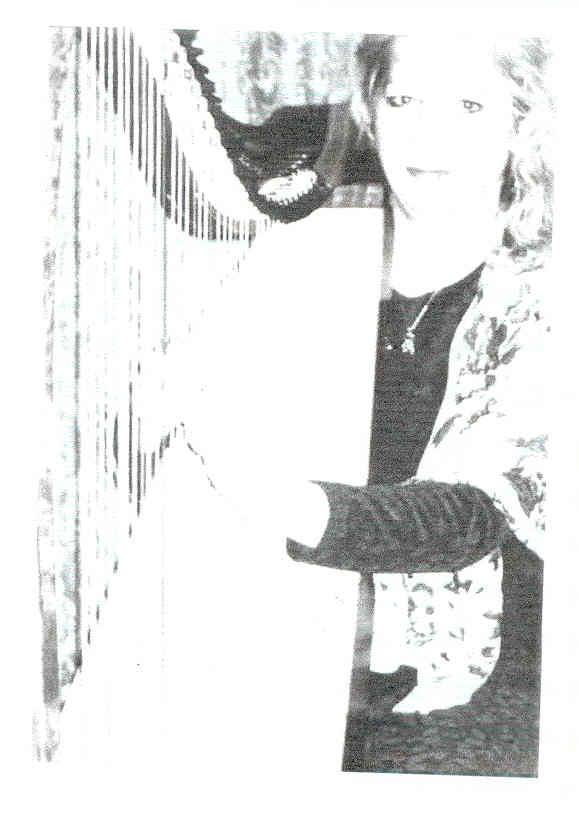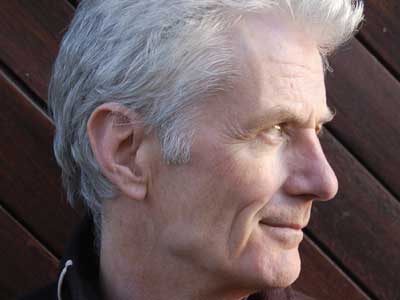Progarchives.com has always (since 2002) relied on banners ads to cover web hosting fees and all.
Please consider supporting us by giving monthly PayPal donations and help keep PA fast-loading and ad-free forever.
/PAlogo_v2.gif) |
A Liberal Decalogue: Russell's Ten Commandments |
Post Reply 
|
Page <1 34567> |
| Author | ||||
twseel 
Forum Senior Member 

Joined: December 15 2012 Location: abroad Status: Offline Points: 22767 |
 Post Options Post Options
 Thanks(0) Thanks(0)
 Quote Quote  Reply Reply
 Posted: February 12 2019 at 13:38 Posted: February 12 2019 at 13:38 |
|||
|
That's just certainty for practical purposes, not for theoretical purposes.
|
||||

|
||||
 |
||||
twseel 
Forum Senior Member 

Joined: December 15 2012 Location: abroad Status: Offline Points: 22767 |
 Post Options Post Options
 Thanks(0) Thanks(0)
 Quote Quote  Reply Reply
 Posted: February 12 2019 at 13:41 Posted: February 12 2019 at 13:41 |
|||
|
On the theoretical level we can doubt the THEORY of gravity, in practice we practically assume that the same consistent phenomenon we describe as gravity will stay consistent.
|
||||

|
||||
 |
||||
siLLy puPPy 
Special Collaborator 

PSIKE, JRF/Canterbury, P Metal, Eclectic Joined: October 05 2013 Location: SFcaUsA Status: Offline Points: 14720 |
 Post Options Post Options
 Thanks(0) Thanks(0)
 Quote Quote  Reply Reply
 Posted: February 12 2019 at 16:35 Posted: February 12 2019 at 16:35 |
|||
|
^ gravity is not a theory, it's a fact. WHAT gravity is, is another matter.
|
||||
 https://rateyourmusic.com/~siLLy_puPPy |
||||
 |
||||
Snicolette 
Forum Senior Member 

Joined: November 02 2018 Location: OR Status: Offline Points: 5972 |
 Post Options Post Options
 Thanks(0) Thanks(0)
 Quote Quote  Reply Reply
 Posted: February 12 2019 at 16:53 Posted: February 12 2019 at 16:53 |
|||
This reminded me of when my son was about 9, he asked me what space was made of. So we wrote to NASA KIDS and they wrote back with some details. |
||||
|
"Into every rain, a little life must fall." ~Tom Rapp
|
||||
 |
||||
siLLy puPPy 
Special Collaborator 

PSIKE, JRF/Canterbury, P Metal, Eclectic Joined: October 05 2013 Location: SFcaUsA Status: Offline Points: 14720 |
 Post Options Post Options
 Thanks(0) Thanks(0)
 Quote Quote  Reply Reply
 Posted: February 12 2019 at 17:04 Posted: February 12 2019 at 17:04 |
|||
I know. I never grew up. My sense of wonder of a child is still in tact but my adult analytical skills have been nurtured to excessiveness! My point is that we don't have to know what gravity is in order for us to understand it's effect. Sorry to hijack this thread. I've made my point so i'll shut the BLEEEEEP up now. Thanks for enduring my rants
 |
||||
 https://rateyourmusic.com/~siLLy_puPPy |
||||
 |
||||
Snicolette 
Forum Senior Member 

Joined: November 02 2018 Location: OR Status: Offline Points: 5972 |
 Post Options Post Options
 Thanks(0) Thanks(0)
 Quote Quote  Reply Reply
 Posted: February 12 2019 at 17:24 Posted: February 12 2019 at 17:24 |
|||
It's a discussion, so much is subjective here, after all. Not everything, of course. That "sense of wonder," is why I never would begin to pretend that I did know something that I did not. How on earth (or anywhere else) could I ever learn new things, if I knew everything....I think that idea was expressed elsewhere herein in a famous quote, the idea of knowing enough to know you don't know....
|
||||
|
"Into every rain, a little life must fall." ~Tom Rapp
|
||||
 |
||||
twseel 
Forum Senior Member 

Joined: December 15 2012 Location: abroad Status: Offline Points: 22767 |
 Post Options Post Options
 Thanks(0) Thanks(0)
 Quote Quote  Reply Reply
 Posted: February 13 2019 at 01:09 Posted: February 13 2019 at 01:09 |
|||
But I think the point you're still missing about this radical rationality is how it can form the basis for understanding things that seem incomprehensible at first. How can you accept quantum physics without reducing the truth value you've ascribed to your earlier understanding of physics? You may be dazed and confused at first but when it matters to you and you put in the conscious effort, your brain can develop a more comprehensive and reliable understanding of the world every time you accept the evidence for something seemingly unlikely. That's what I get from it at least. |
||||

|
||||
 |
||||
Logan 
Forum & Site Admin Group 

Site Admin Joined: April 05 2006 Location: @ wicker man Status: Online Points: 32683 |
 Post Options Post Options
 Thanks(0) Thanks(0)
 Quote Quote  Reply Reply
 Posted: February 13 2019 at 07:28 Posted: February 13 2019 at 07:28 |
|||
To use your thoughts as a springboard for my own which are getting a bit masturbatory (your term, I'd say w**ky): First of all, if anyone is taking these "commandments" as absolutes, one would be missing the point since a non-absolutist would not take anything as absolute, including their universal dismissal of absolutism (and I think there is something tongue-in-cheek in calling it commandments after the Ten Commandments).. It can lead to some paradoxical thinking, but I don't think it need lead to cognitive dissonance (since you brought that up before and perhaps I did before that). Being able to hold multiple possibilities, and even contradictions, in one's mind at the same time can show adept thinking and need not lead to psychological stress. If one does not hold either proposition as absolute fact, then, I don't think that need be a problem. The left brain and right brain works in concert. I won't get into that, but some research indicates less compartmentalisation than was thought with the hemispheres. It is extremely improbable that symphonic prog is not a subgenre on this site. Assuming we have a known, shared universe between us, and it exists when we are not observing it, then I would say that yes, it exists, I think it exists, but still some assumptions need to be made. That said, I think it's better to take a more general message about being open to new ideas and evidence (there is evidence that it exists) from "Do not feel absolutely certain of anything." "The first step on the road to wisdom is the recognition of one's own ignorance" (paraphrased by me from Plato). What's most important to me is recognising that what we assume to be true/ absolute may be false or invalid, or there may be other valid interpretations and perspectives, and we should question our notions that we hold as absolute or even just probable. I'm reminded of O'Brian in 1984 when he's interrogating Winston and they are talking about the nature of reality in this(to take one quote). "You believe that reality is something objective, external, existing in its own right. You also believe that the nature of reality is self-evident. When you delude yourself into thinking that you see something, you assume that everyone else sees the same thing as you. But I tell you, Winston, that reality is not external. Reality exists in the human mind, and nowhere else. Not in the individual mind, which can make mistakes, and in any case soon perishes: only in the mind of the Party, which is collective and immortal. Whatever the Party holds to be the truth, is truth. It is impossible to see reality except by looking through the eyes of the Party. That is the fact that you have got to relearn, Winston. It needs an act of self- destruction, an effort of the will. You must humble yourself before you can become sane." (3.2.51, O’Brien in 1984) 2+24 Winston persists. Mathematics (at least "hard" mathematics and logic) is a closed-set, within that approach and framework, proof exists. Science, theory, physics and metaphysics is not a closed set but it utilises closed sets. Now aside from being a philosopher Bertrand Russell was an acclaimed mathematician, and yet he as not an absolutist. He held strong beliefs, he used proof within the constructed field of mathematics (a useful tool). His axioms were part of an article as I recall, and he has gone into more depth elsewhere. He's deliberately keeping it short in echoing The Ten Commandments. Think of it as a summary of the ideas. In terms of practicality, it is best suited to human values, behaviors and philosophies, and this outlook is best thought of as of that realm. The commandments are part of an article he write for The New York Times called “The Best Answer to Fanaticism--Liberalism; Its calm search for truth, viewed as dangerous in many places, remains the hope of humanity” and it is best viewed within the context of the article: Quotes from the article (I bolded one part): "But the liberal attitude does not say that you should oppose authority. It says only that you should be free to oppose authority, which is quite a different thing. The essence of the liberal outlook in the intellectual sphere is a belief that unbiased discussion is a useful thing and that men should be free to question anything if they can support their questioning by solid arguments. The opposite view, which is maintained by those who cannot be called liberals, is that the truth is already known, and that to question it is necessarily subversive." "The teacher who urges doctrines subversive to existing authority does not, if he is a liberal, advocate the establishment of a new authority even more tyrannical than the old. He advocates certain limits to the exercise of authority, and he wishes these limits to be observed not only when the authority would support a creed with which he disagrees but also when it would support one with which he is in complete agreement. I am, for my part, a believer in democracy, but I do not like a regime which makes belief in democracy compulsory." {Edited to add a "don't"} Edited by Logan - February 13 2019 at 08:24 |
||||
|
Just a fanboy passin' through.
|
||||
 |
||||
twseel 
Forum Senior Member 

Joined: December 15 2012 Location: abroad Status: Offline Points: 22767 |
 Post Options Post Options
 Thanks(0) Thanks(0)
 Quote Quote  Reply Reply
 Posted: February 13 2019 at 07:55 Posted: February 13 2019 at 07:55 |
|||
|
To agree one thing though, Puppy, I too can get really annoyed when I see the 'but you don't know for sure' argument used as a way to shut down better informed people, and I think the 'nothing is certain' principle should be used as a motivation to produce more evidence rather than less.
|
||||

|
||||
 |
||||
Logan 
Forum & Site Admin Group 

Site Admin Joined: April 05 2006 Location: @ wicker man Status: Online Points: 32683 |
 Post Options Post Options
 Thanks(0) Thanks(0)
 Quote Quote  Reply Reply
 Posted: February 13 2019 at 08:05 Posted: February 13 2019 at 08:05 |
|||
I find this a slightly perplexing response at first from Silly Puppy as you had explicitly framed your initial clause within the theoretical perspective. There are laws of gravity and there are theories of gravity (Newton, Einstein, later). In practicality, one might call the effect (say falling) a fact, but gravity itself to not be a fact. There are different ways to look at it methinks. Science works on sets of assumptions, and as said, it is not a closed-set. Gravity is a theory in the way that it explains an observed "fact" (say falling) which is arrived at through inductive logic. I would not use the term fact to describe gravity itself even if it is a fact that things fall down (one doesn't need to go into brains in vat or various metaphysical avenues) -- that things fall down is a simpler form of data which can be directly observed and I am fine with calling that "a fact" within the context of a knowable and observable universe. A proper scientific theory is a very strong claim, much stronger than a hypothesis, it has withstood falsifiability and scrutiny. Gravity as a means of explaining phenomena is not a fact, but a theory. It's a way of explaining an observed fact -- for instance falling down without being the falling down itself. This is way I don't accept it as absolute or fact even when not going down the metaphysical route. By the way, I was hoping to understand your views on this better (I snipped our posts and corrected some typosfrom my earlier post without changing the thoughts):
|
||||
|
Just a fanboy passin' through.
|
||||
 |
||||
Logan 
Forum & Site Admin Group 

Site Admin Joined: April 05 2006 Location: @ wicker man Status: Online Points: 32683 |
 Post Options Post Options
 Thanks(0) Thanks(0)
 Quote Quote  Reply Reply
 Posted: February 13 2019 at 08:07 Posted: February 13 2019 at 08:07 |
|||
If I seem to be doing that, please do let me know. I don't want to shut down argument and I like to be open to a wide variety of perspectives and hope to learn in conversation. Edited by Logan - February 13 2019 at 08:10 |
||||
|
Just a fanboy passin' through.
|
||||
 |
||||
Lewian 
Prog Reviewer 

Joined: August 09 2015 Location: Italy Status: Offline Points: 14108 |
 Post Options Post Options
 Thanks(0) Thanks(0)
 Quote Quote  Reply Reply
 Posted: February 13 2019 at 09:15 Posted: February 13 2019 at 09:15 |
|||
|
Some more on "1. Do not feel absolutely certain of anything." As I wrote earlier, I often find more interesting what the use of language is meant to achieve than what it "really" means, whether it's "really" true or false etc. This commandment in my view can also be understood in this way. I think it is meant to apply to situations in which there is controversy, and proper controversy (i.e. not something made up by somebody just to provoke or annoy). I'd think we all have some basic agreement about how gravity works and what this means in daily life, and therefore regarding these issues this commandment doesn't really apply, or isn't really of interest or importance. I disagreed with siLLy puPPy earlier but the disagreement whether we should or should not feel certain about gravity isn't really important to me; rather I think that the examples that he brought up (incl. Symphonic Prog and 1+1=2) aren't examples for which Russell's commandment is relevant in the sense that we really get any benefit out of it. Rather this becomes interesting when faced with somebody who has seriously different views, and the question then is, do we give such a person and the view they hold a chance, or do we shut her down believing that we're absolutely right and she's not going to change that at all anyway?
Well said, and actually in perfect agreement with Russell's commandment, which doesn't come as a supposedly objective statement "nobody knows for sure" but rather I understand it as an appeal for openness and against shutting down anybody, surely not those who might know better! Regarding 1+1=2 and "Symphonic Prog is a genre on PA" by the way I'd say that these are true relative to specific systems of reference, within which they cannot be doubted because they are essential parts of the constitution of these systems (somebody who says that "Symphonic Prog is not a genre on PA" maybe right but only if she talks about another PA); however it's a stretch to call these truths "absolute". |
||||
 |
||||
twseel 
Forum Senior Member 

Joined: December 15 2012 Location: abroad Status: Offline Points: 22767 |
 Post Options Post Options
 Thanks(0) Thanks(0)
 Quote Quote  Reply Reply
 Posted: February 13 2019 at 09:35 Posted: February 13 2019 at 09:35 |
|||
|
||||

|
||||
 |
||||
Polymorphia 
Forum Senior Member 

Joined: November 06 2012 Location: here Status: Offline Points: 8856 |
 Post Options Post Options
 Thanks(0) Thanks(0)
 Quote Quote  Reply Reply
 Posted: February 13 2019 at 20:13 Posted: February 13 2019 at 20:13 |
|||
|
My understanding is that Russell is essentially championing the practice of methodical doubt that Descartes used without believing in an axiom like Descartes did. So the "certainty" that Russell speaks of is mathematical certainty, which cannot involve the senses or experience unless the senses and experience were reasoned deductively from an axiom. According to my experience (can I trust yours as much as mine?), gravity being part of an illusory reality created by lizard-like overlords (that we, of course, cannot sense) from another dimension rather than an actual physical phenomenon is very, very, very, very ^10000 improbable, but still possible, like Russell's tea pot (although meant to make a different point). For Russell, anything that we "know" is known in probabilities. Is this practical? In some cases, probably not with gravity. Being absolutely certain of gravity and being only practically certain of gravity will probably produce the same results.
fwiw, I'm with Descartes. Edited by Polymorphia - February 13 2019 at 20:16 |
||||
 |
||||
siLLy puPPy 
Special Collaborator 

PSIKE, JRF/Canterbury, P Metal, Eclectic Joined: October 05 2013 Location: SFcaUsA Status: Offline Points: 14720 |
 Post Options Post Options
 Thanks(0) Thanks(0)
 Quote Quote  Reply Reply
 Posted: February 13 2019 at 20:17 Posted: February 13 2019 at 20:17 |
|||
So, a David Icke fan, huh? I knew it all boiled down to the Reptilean Overlords  GRAVITY is an illusion conceived by SATAN, just like the round earth
 |
||||
 https://rateyourmusic.com/~siLLy_puPPy |
||||
 |
||||
jamesbaldwin 
Prog Reviewer 

Joined: September 25 2015 Location: Milano Status: Offline Points: 5744 |
 Post Options Post Options
 Thanks(0) Thanks(0)
 Quote Quote  Reply Reply
 Posted: February 15 2019 at 09:32 Posted: February 15 2019 at 09:32 |
|||
|
Very interesting thread. 1) the reality of common sense. That is to say: the world (the universe) exists. It is not an effect of our perception. There is a fact (it is not all relative). Almost all scientists start from here. In other words, there are certainties, starting from the existence of the universe. 2) scientific theories explain the phenomena of the world, and when they are always corroborated by the facts (and never refuted), after a while scientists consider it a fact. No longer a theory. Some theories are easy to verify, such as gravity (many reproducible experiments are made), others not, such as biological ones: they require different types of evidence (macroevolution: based on a unique story, each experiment is unique, and how to prove a 'evolution occurred in billions of years? You can not do such a long experiment, hence also the various critics of evolution: no one can prove in the laboratory how a new species is formed: of course it would take thousands of years!). For example, the geocentric theories of Copernicus and Kepler, is considered a fact today. Then, of course, with regard to the force of gravity, which is the force that attracts every object present in the Universe on the basis of the mass, even today this is considered a fact. The Earth revolves around the Sun and not inversely because the center of gravity of the masses between Earth and Sun, being the Sun much bigger, is practically in the Sun, near its center. Returning to Russell, I believe that he meant to always doubt, understood as a methodical doubt, of everything (scientific assumption is one of which he can prove his falsity: "tomorrow it will rain" is a scientific assumption: it could happen that instead there will be the Sun. Tomorrow is Saturday is not scientific: it is sure). "You better be doubtful" sings Housemartins: Yes, always taking into consideration that you can make mistakes, as an opinion, is always wise. But I think that Russell accepted that in science, some statements are considered facts.
Edited by jamesbaldwin - February 15 2019 at 09:58 |
||||
|
"Happiness is real only when shared"
|
||||
 |
||||
Logan 
Forum & Site Admin Group 

Site Admin Joined: April 05 2006 Location: @ wicker man Status: Online Points: 32683 |
 Post Options Post Options
 Thanks(0) Thanks(0)
 Quote Quote  Reply Reply
 Posted: February 15 2019 at 11:35 Posted: February 15 2019 at 11:35 |
|||
|
Some very interesting and thoughtful posts here.
While science and epistemology (theory of knowledge for those who might be unfamiliar with the term) is based on assumptions, we and science can consider many things to be facts based on observation, experimentation, and logic that has withstood falsifiability attempts. I would sooner consider gravity to be a fact than that a mass murderer who has done terrible things is necessarily "evil" (but then that can come down to one's own frameworks and biases). It can rather depend on how one "frames" the word fact. I would maintain that science deals in evidence rather than proof (while utilising types of proof, for instance in logic and mathematics) as it's not a closed system, but facts work in science. This is where clear definitions are useful, and terms can be used differently in different disciplines and systems, one certainly can say that science deals in fact and that that which has has been carefully observed and tested can be considered fact. I see fact in science as very well substantiated data, but it need not imply absolute certainty. The theory is the well-established/ very well-substantiated explanation of the data which is considered factual. Facts in this scientific sense are simple, they are based on empirical evidence and rely on meticulous, repeatable observation or measurement. This, and science generally, relies on a knowable, observable universe, it is consistent with objective, observable and testable reality. That said, indeed, while this an interesting avenue to explore, it's clear to me that the logician, mathematician and philosopher Bertrand Russell's meaning was that one should doubt and that one should back up one's beliefs and claims with evidence and logic as various people including myself have said. He promoted reason and rational scepticism. To quote this once again from his article that contains his "commandments": "The essence of the liberal outlook in the intellectual sphere is a belief that unbiased discussion is a useful thing and that men should be free to question anything if they can support their questioning by solid arguments." "I think we ought always to entertain our opinions with some measure of doubt. I shouldn't wish people dogmatically to believe any philosophy, not even mine" (Bertrand Russell). Edited by Logan - February 15 2019 at 11:38 |
||||
|
Just a fanboy passin' through.
|
||||
 |
||||
Logan 
Forum & Site Admin Group 

Site Admin Joined: April 05 2006 Location: @ wicker man Status: Online Points: 32683 |
 Post Options Post Options
 Thanks(0) Thanks(0)
 Quote Quote  Reply Reply
 Posted: March 21 2019 at 14:25 Posted: March 21 2019 at 14:25 |
|||
|
I noticed a disparaging comment about liberals in another topic, but didn't want to side-track that one. The term liberal has different connotations depending on the discipline, the region, the context and the time. It can mean different things and have different shades of meaning. I know people who identify as conservatives who also stand up for liberal democracy and call themselves classic liberals. I know self-professed liberals who despise many so-called progressives (call them regressives), and I know progressives who despise some sorts of liberals. I think you can be a liberal who identifies more with the so-called right, left, or centre of political discourse. On some issues I'd be considered by some on the left, and on others some would claim that I'm on the right, and I don't like to put myself on the spectrum (and I don't belong to any political party or religious group).
I don't think labeling is helpful in many cases (far too often it is used to insult and shut down conversation rather than in the interests of an honest, intellectual pursuit, and too often its an oversimplification -- people and systems have complexity). All too often it lacks nuance, generates more misunderstanding and bad feelings, can get in the way of truth-seeking (or what seems most valid and rational), and can get in the way of productive conversation (and often goes against one of the principles of some formal argumentation, the principle of charity). It's important to define our terms well, and understand other perspectives and psychologies and where one disagrees. I like dialectic which leads to some synthesis. Tribalism and absolutism can be dangerous. It's important to define well when it comes to what can be quite nebulous terms that incorporate a wide spectrum of people under its umbrella. I like to think that I'm liberal in being a fairly free-thinker, a non-absolutist, and open to new evidence, reason, and perspectives. To adopt a saying, as a liberal, I like to think I have an open-mind, just not so open that my brains fall out. Some who call themselves liberal I find very illiberal (close-minded, hyper-opinionated, very intolerant), and don't seem to subscribe to enlightenment values. In some ways I am quite conservative (or preservative) as I wish to conserve that which I think worthwhile, that which I value (be it the environment, culture, art...). Anyway, so what does being a liberal or being a liberal-thinker or having a liberal mindset mean to people here? I am hoping to hear from some who use the term "liberal" as a pejorative, or see it negatively, and understand those people better, as well as those who subscribe to liberal values/ a liberal mindset. It might help to start with defining the term in the way that you use it as otherwise it might lead to misunderstanding and talking at cross-purposes. Edited by Logan - March 21 2019 at 14:51 |
||||
|
Just a fanboy passin' through.
|
||||
 |
||||
Snicolette 
Forum Senior Member 

Joined: November 02 2018 Location: OR Status: Offline Points: 5972 |
 Post Options Post Options
 Thanks(0) Thanks(0)
 Quote Quote  Reply Reply
 Posted: March 21 2019 at 15:59 Posted: March 21 2019 at 15:59 |
|||
I pretty much define myself as a liberal and hope that in so doing, I am defining myself in the terms such as you describe above (not the negative, I do try to listen to all sides and see other's points of view), and also agree on your definition of conservative/preservative, and think that I espouse that as well, in being a "liberal." I strongly believe that we must all have respectful discourse on all sides, even though we may not be swayed by another's explanation for a particular stance, nor they to mine, we at least have been exposed to ideas that are not our own in an effort to understand one another, and hopefully end up with at least peaceful tolerance on both sides...and also thereby have a chance to find what we have in common through such discourse. This is something that I think is one of the great beauties embodied in music, it can speak to all, even when we don't share a common language otherwise.
|
||||
|
"Into every rain, a little life must fall." ~Tom Rapp
|
||||
 |
||||
Logan 
Forum & Site Admin Group 

Site Admin Joined: April 05 2006 Location: @ wicker man Status: Online Points: 32683 |
 Post Options Post Options
 Thanks(0) Thanks(0)
 Quote Quote  Reply Reply
 Posted: March 22 2019 at 02:44 Posted: March 22 2019 at 02:44 |
|||
Thanks, Nickie. Agreed. I'll just lamely add (it's late and I'm not thinking very clearly so prepare for some mega rambling) that while we ultimately should not necessarily tolerate the intolerant, even when speaking to intolerant people I think some dialogue can be useful to better understand their intolerance -- that is provided they are tolerant enough of us to engage in some dialogue, but at the least some listening can help. Not only is acting in a respectful manner nice, but when one one is mocking, patronising, arrogant or generally demeaning, it causes people to go on the defensive and be more offensive themselves. I don't think that it's a good strategy for changing opinions if that is one's aim (doubt that usually is the aim when being denigrating), and is likely to only appeal to those witnesses of the spectacle who agree with you. I think that acting respectfully is important, but at the same time I don't think we need to respect other opinions or people. I like to at least try to understand someone's perspective even if I find it morally repugnant or very misguided. Peaceful tolerance at the least, or politely "agreeing to disagree" isn't a bad outcome. I should probably stop looking at Twitter, where I find far too many people who resort to ad hominems, misinformed people who take others out of context, and terrible tribalism and trolling, as well as really irritating to me gifs (ugh, I should try be more tolerant of those, but they seem so inane, and I know a thing or two, or both, about being inane). While I have researched why "liberal" is considered by so many "Conservatives", particularly in the US, to be a dirty word and liberals as being worthy of mocking, when I've engaged with such people (mostly in political forums before I joined this site), none of them were willing to define what they meant by liberal to me or even expatiate on why they despise liberal values (or the history of liberal democracies?). I thought it was mostly an American thing, but I have met Canadians who also use it in the same disparaging way. Being flexible in one's thinking, and being open to re-evaluating one's opinions when presented with new evidence is not a bad thing in my books. While I see the logic of moral relativism, I wouldn't even consider myself to be a moral relativist. Ethics that promote the minimum amount of suffering and the most amount of satisfaction without the need for certain supernatural assumptions seem best to me. And secularism seems preferable to sectarianism to me. I guess many conservatives, or alt-right, people these days think that liberals have a death wish for their traditions, or think that all white Liberals are living with "white guilt". Or they think that are too affirmative action. And of course there's the idea that "liberals", who do tend to favour social safety nets, give a free pass for laziness, and some claim are not interested enough in the prosperity of the individual. Personally, I do want want to see things become fairer (and by that I don't mean more white, or less white for that matter). I'd like to see more equality of opportunity, but I still believe in merit. That said, I think some people need more help than others to realise their potential and I do think that a level of systemic change is needed to make things more equitable which might require some affirmative action to get things going. I also think those who put more effort into things should benefit, and those who are smarter I would expect to generally do better (ideally, I'd want smart, honest and "good"/ kind people in positions of power). Ideally, I would like a society where everyone has the opportunity to have a deeply fulfilling, satisfying, and rich life (by rich I don't mean money) and can be given opportunities to reach their potential (be it as a gigolo, a gynecologist, a physicist, a dog walker, a mechanic, a mathematician, a chef, a pet food taster, a teacher, a writer, an artist, a deodorant tester or as a vacuum cleaner, which would kind of suck). While I'd like to see improvements, I don't believe in changing things for the sake of changing things. There are many things that have come from my civilisational history, as well as others, that I would like to see preserved. The conservation of many things is important to me. I value much of my cultural heritage, and when I travel, I appreciate other cultures. I care deeply about environmental issues, and so deeply value the preservation/ conservation of "nature". I value science, and the scientific method, but I don't think that all technological innovation would be good thing (like if we could all 3D print nuclear weapons, or create bio-weapons with our home technology). I'd like to think that humanity will exist, improve and prosper long after I am gone -- that may mean some unpopular decisions such as limiting the number of offspring allowed and advances in robotics to help with a workforce, and possibly genetic enhancements, but that could lead to a Gattaca-like brave new world. Edited by Logan - March 22 2019 at 02:57 |
||||
|
Just a fanboy passin' through.
|
||||
 |
||||
Post Reply 
|
Page <1 34567> |
| Forum Jump | Forum Permissions  You cannot post new topics in this forum You cannot reply to topics in this forum You cannot delete your posts in this forum You cannot edit your posts in this forum You cannot create polls in this forum You cannot vote in polls in this forum |